Last Descents
Photos by Jr. Rodriguez
Everything sparkles at night. It’s as if the sun has left all of its energy in every grain of sand and green leaf when it set the day before. The sparkles bounce, reflect, and refract beneath the glow of my headlamp. There’s only the sound of the crunching footsteps to accompany the mirage. I’m breathing hard. My nostrils hurt with every breath. The tips of my fingers are becoming numb, not sure why I’m doing this and it’s only the beginning.
Do you know the feeling of having done one of the hardest things ever? Amidst the exhaustion there’s relief that comes with it, partly because you’re proud but mostly because it’s over. These past three days have been the hardest thing ever, back to back to back. The “hardest thing” just keeps getting harder, with no relief.
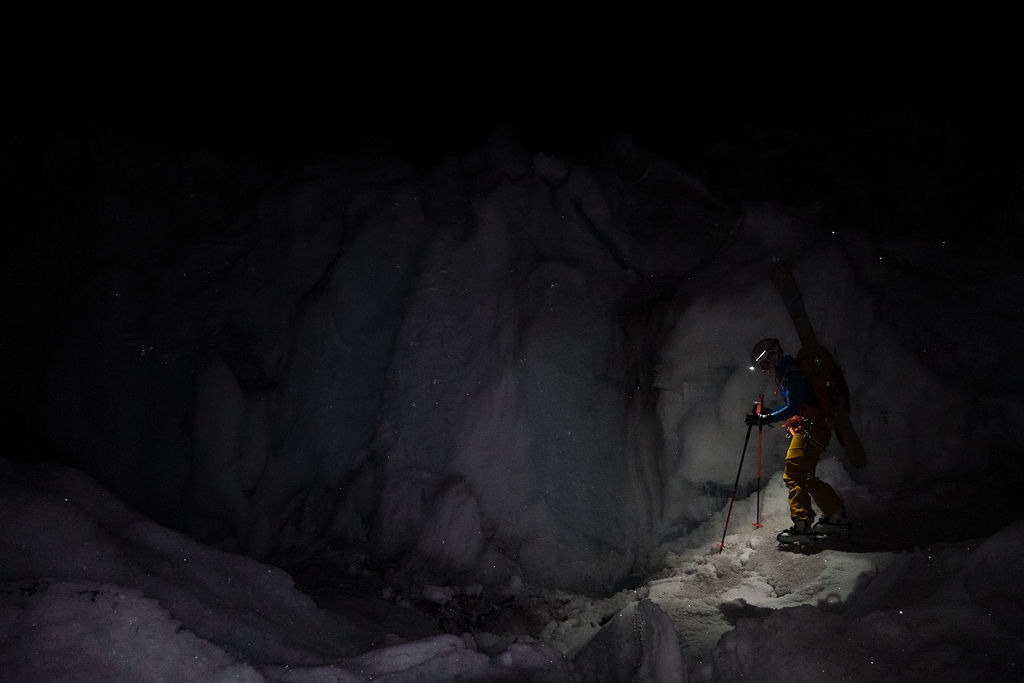
Why do we chase goals? They are socially acceptable achievements that we prescribe to ourselves and each other. But what if the goals weren’t made for you? What if they were purposefully made to erase and exclude your communities?
The volcanoes in Ecuador are lonely and solitary. They are islands high above an ocean of clouds. A massive creation of solidified lava refusing to be moved. As we slowly started to make our way up them, I realized they weren’t lonely at all. Once you get above the ceiling of clouds, you see them all smiling at each other. You see their faces blush with the early morning light. They are like faros or lighthouses, keeping each other company across the lonely oceans. They talk to each other too. As we ascended in the dark we would hear blips of radio activity from guides visiting each island in the clouds. “hello from Cotopaxi!” “Conditions are great on Antisana!” “Have a great climb on Cayambe, I’m here if you need anything!” These little conversations suddenly shrunk the distances between us and made us next door neighbors.
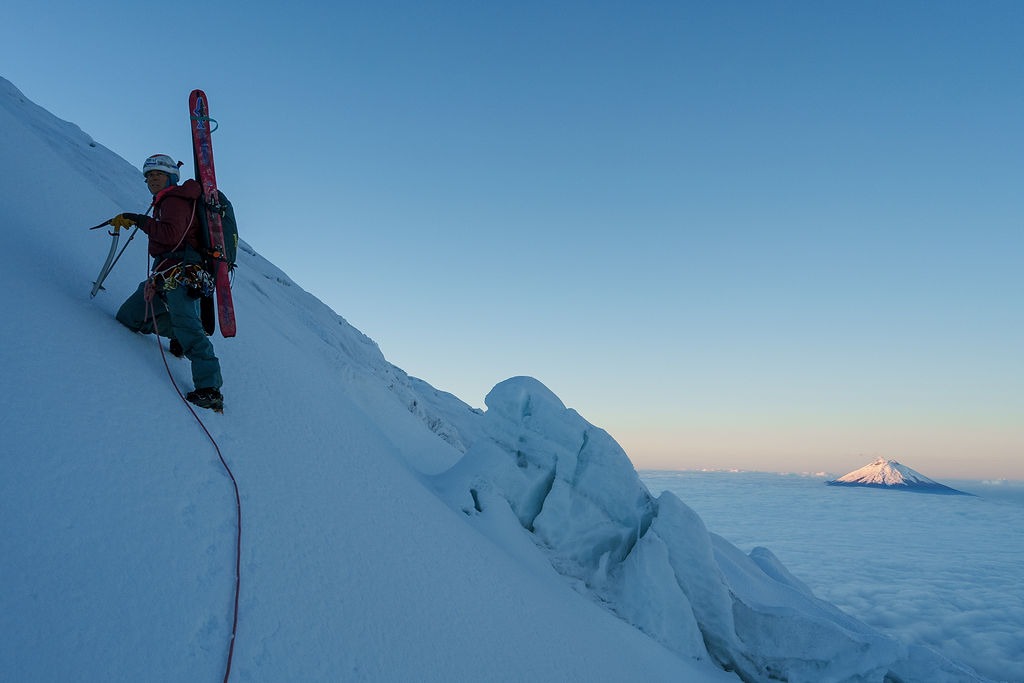
Being led by Latine guides hits different. The sun’s reflection off the glacier hits different, the sounds of the endemic Ecuadorian Hillstar hits different, the food, the air, the conversations, todo pega differente. It hits my heart different. It reminded me of the first time I spoke Spanish while skiing, the time our entire backcountry group was from the Latine diaspora, the time I taught my cousin to ski. All of it brings up different emotions. Skiing has always been a difficult subject for me because of its pointlessness, its culture, and what gets glorified.
“Why don’t they care?” I repeated to myself, in cadence with my footsteps. We followed all of the formulas, and obtained all of the knowledge. Why don’t they care about our stories, our people, our lands? Sociology says it’s the Global North’s fault. Eurocentric culture collectively decided what lands are worth saving, protecting, and what lands are to be destroyed in the process of this so-called conservation: the Global South. Environmental studies say it’s merely a land mass issue; there is more land in the Northern Hemisphere than the Southern Hemisphere. More importantly, there are more glaciers in the North. This means more freshwater reservoirs. But there we were. Standing on the tropical glaciers. Their mere existence was a contradiction to everything we’d been taught.
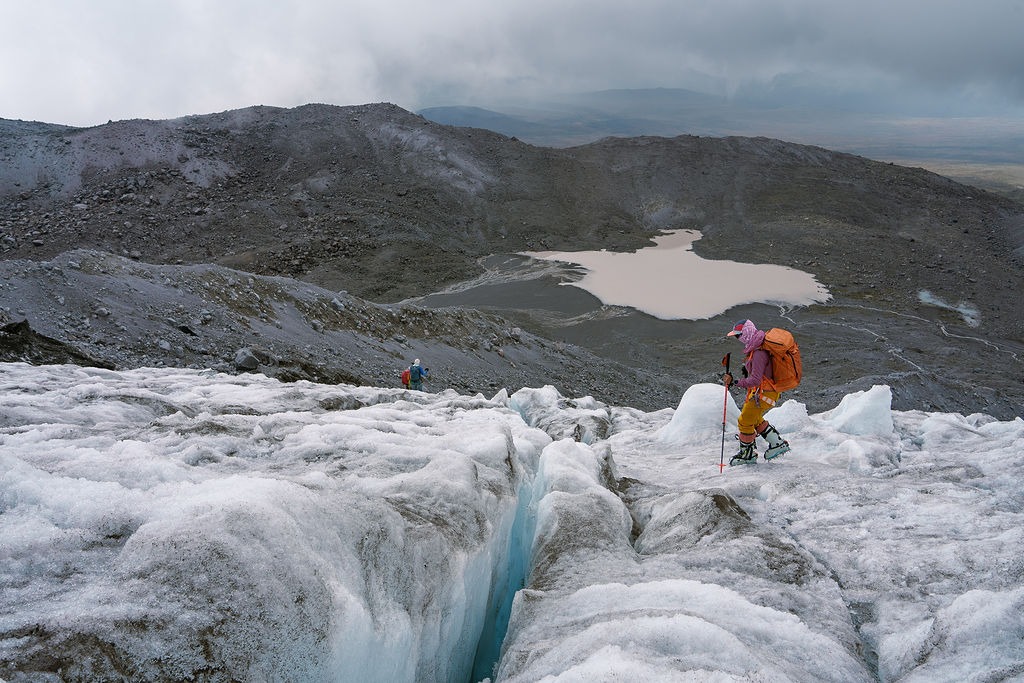
And there they were. Pablo Pruncajas and Juliana Garcia. The people US ski culture doesn’t tell us about. They are walking history books. I was enamored by this idea of skiing with Pablo and Juliana, both Ecuadorian IFMGA guides who returned home to ski el patio de su casa, their backyards. Pablo established skiing in the Ecuadorian volcanoes, setting dozens of first descents. Juliana quickly followed in his footsteps and is bringing more Ecuadorians with her every year. The first ski descents have a high ticket price within these societal goals we’ve created. The possibility of being part of this process excited me more than I’d like to admit.
I couldn’t get a grasp on the scale of things. The only thing bigger than the glaciers were the footprints of where they once stood. Rapidly and violently shrinking. The only thing I could understand was how important this was. It wasn’t until we were staring at the complexity of the glacier we had aimed to ski that I began to understand the first descent thing. It wasn’t about clout, achieving fame, or ticking another box; it was a bereavement. It wasn’t the first ski descent, it was the last one.
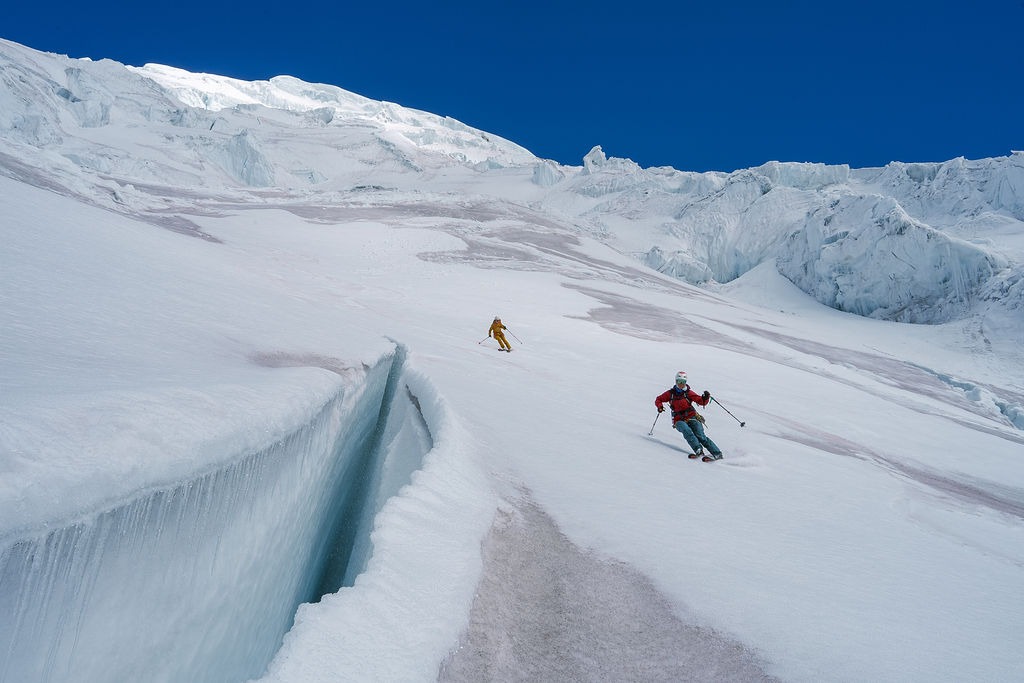
While we were acclimatizing in Quito, soaking in the sunshine and ceviche, Pablo and Juliana guided a trip to ski the same mountains we would visit. They found a new ski line on the way down, intricately picking their way through fallen seracs, crevasses, and steep slopes. But when we skinned up this mountain on a scouting mission two weeks later, the ski line was gone. A snow bridge collapses, a serac falls, and a crevasse opens. The route becomes impassable, irreparable – at least until the next ice age. The ski descent was a first and a last. So Pablo finds a new one for us to pick our way down.
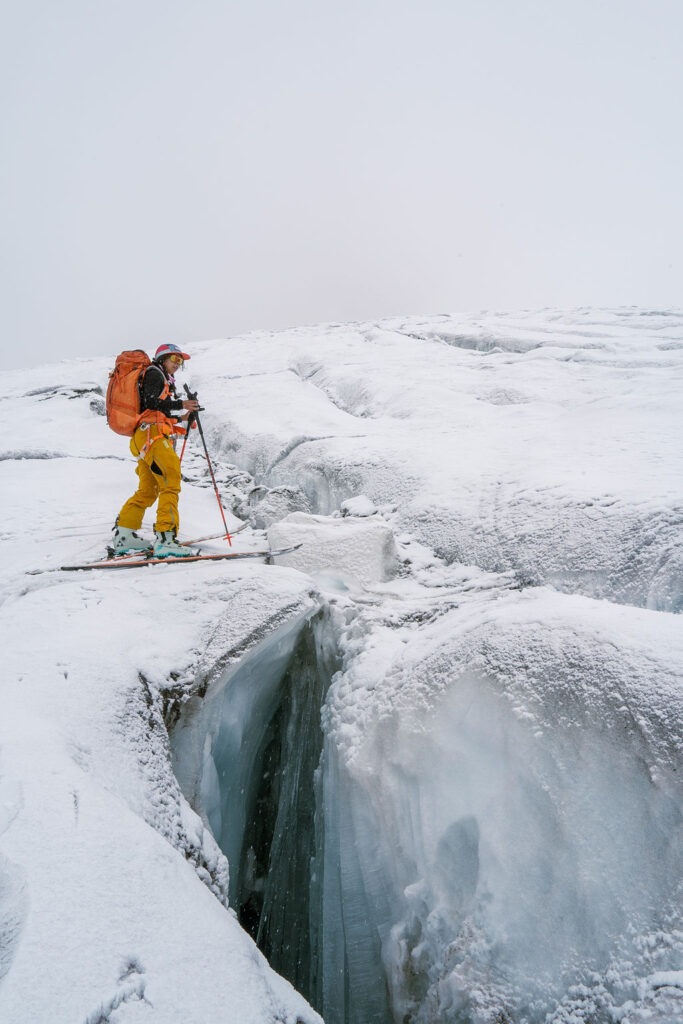
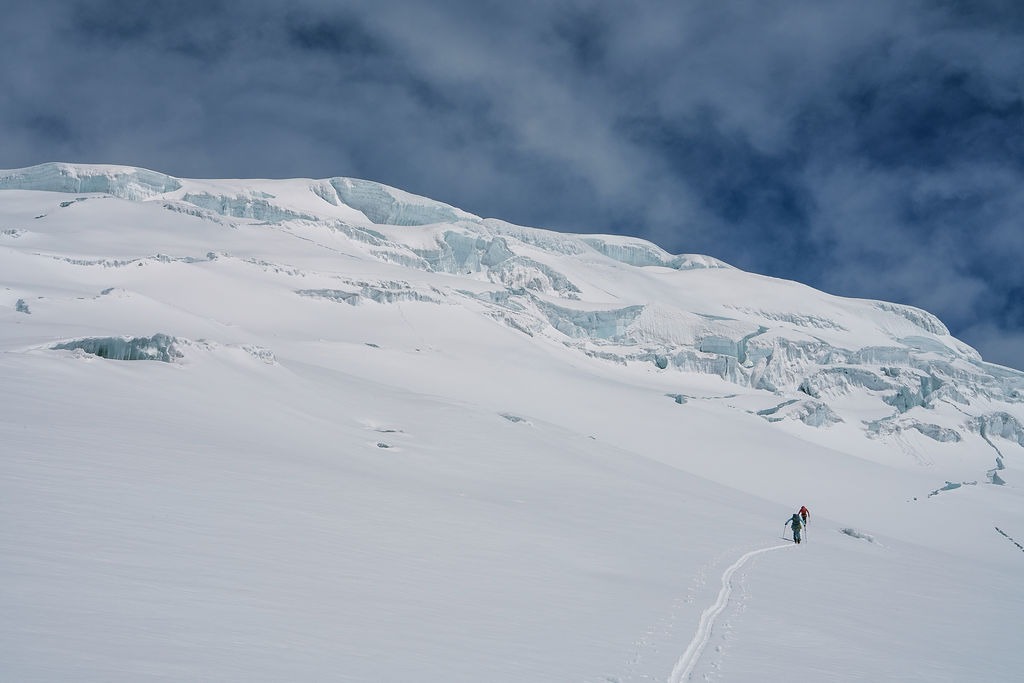
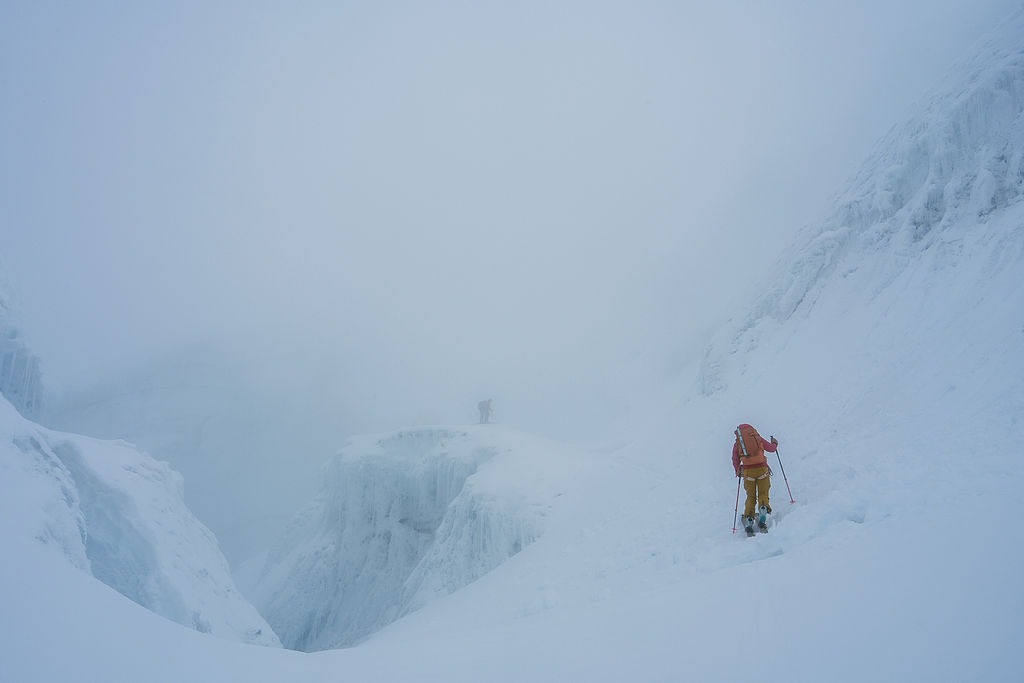
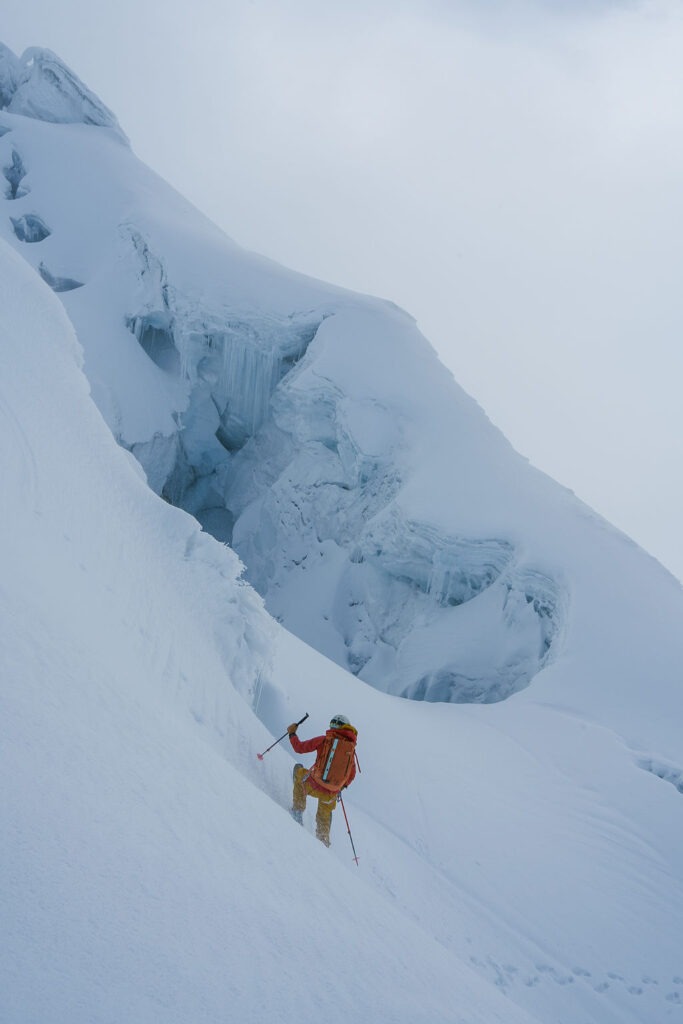
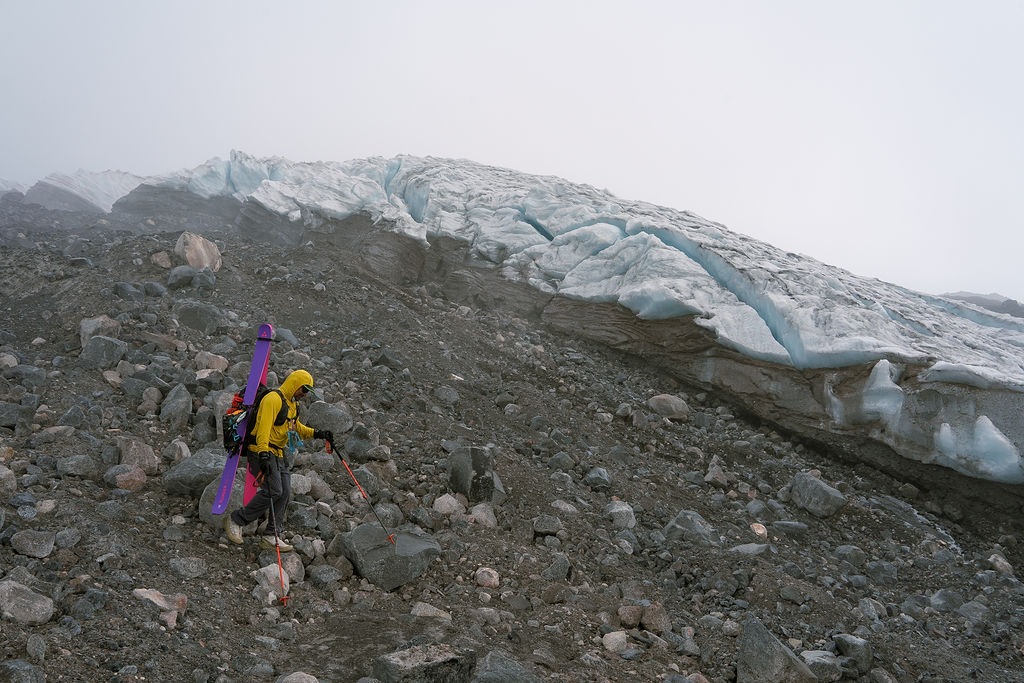
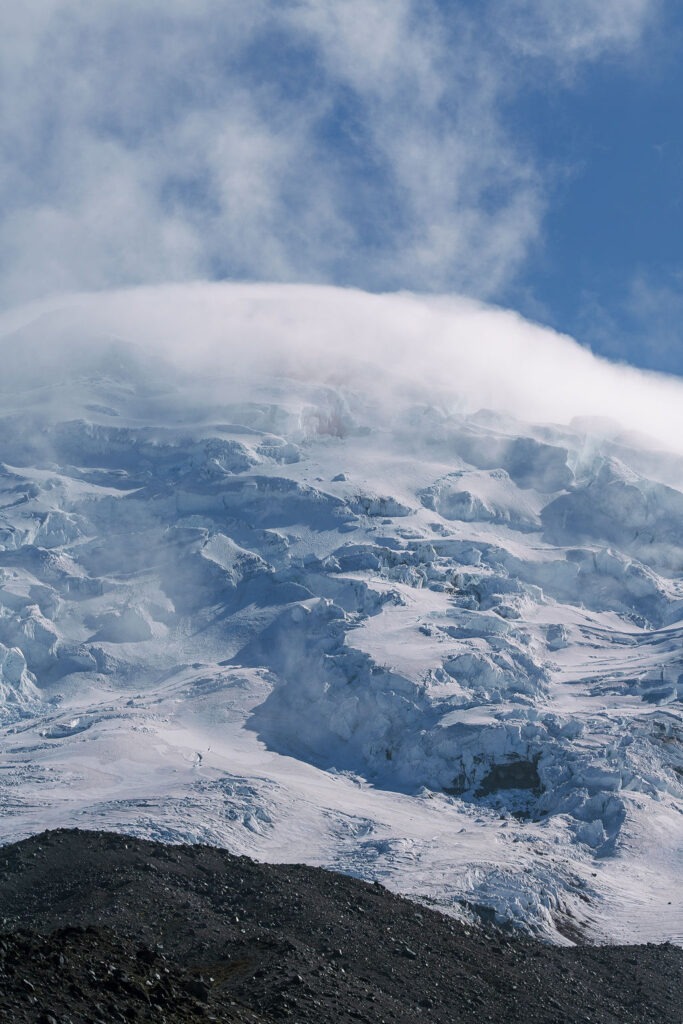
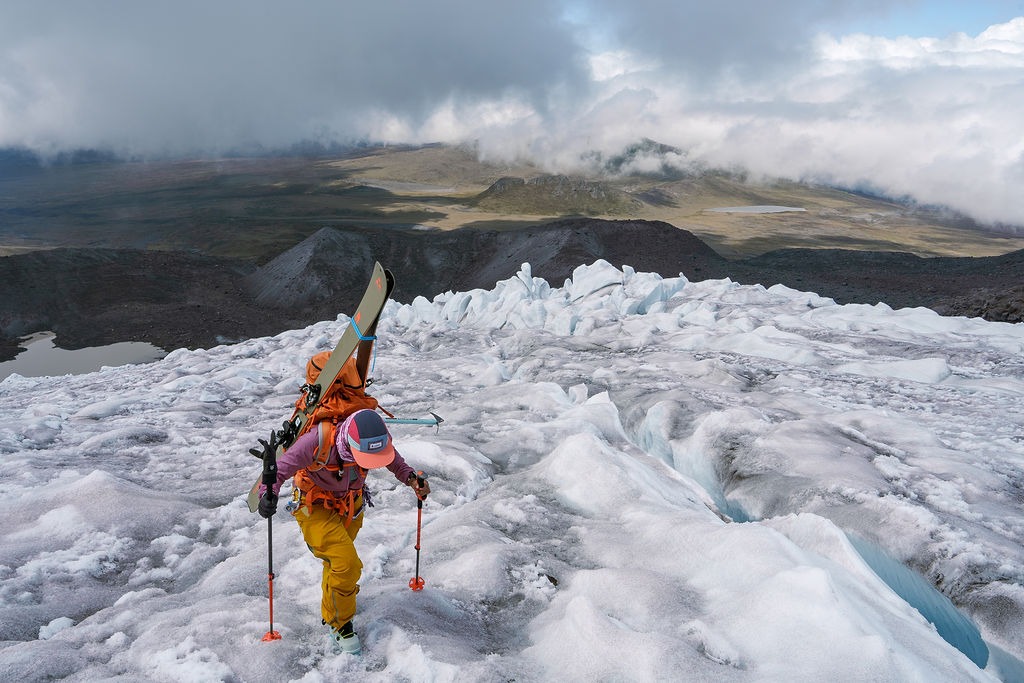
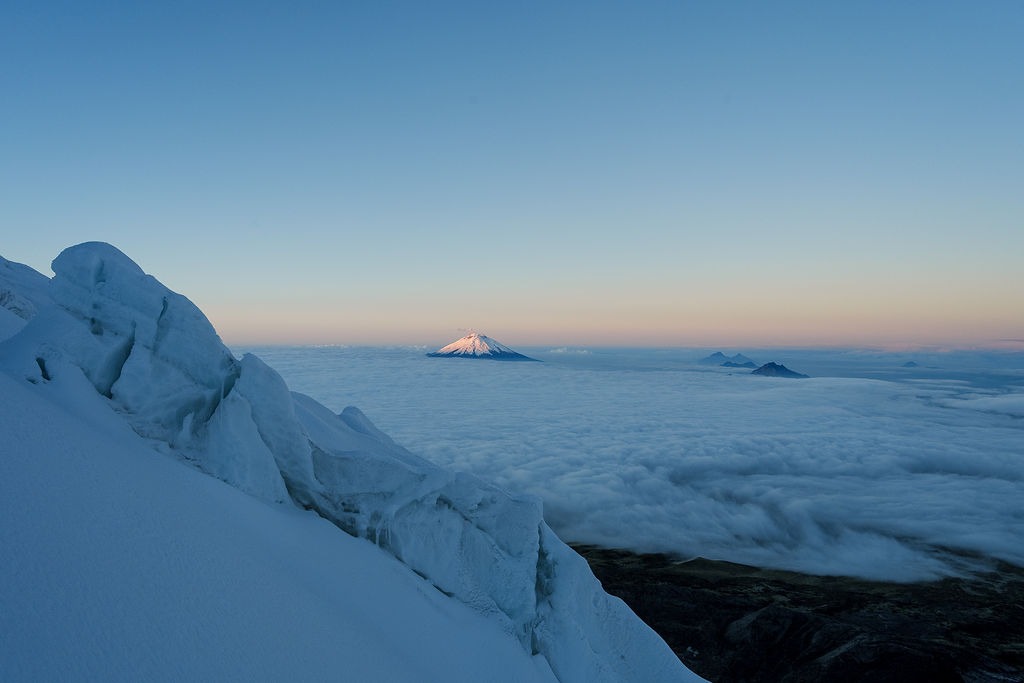
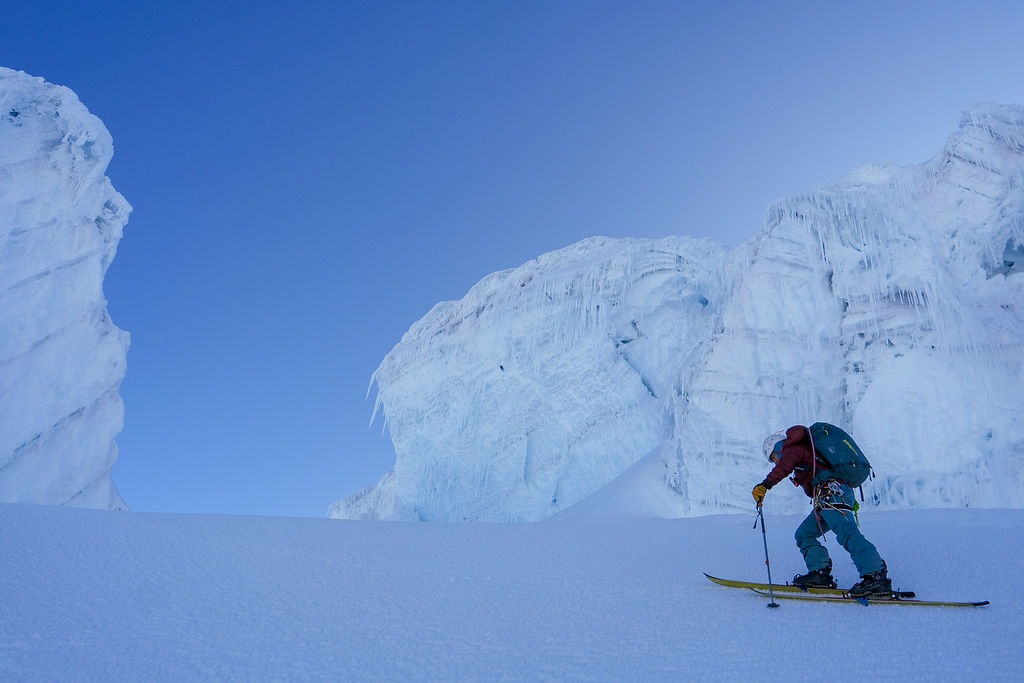
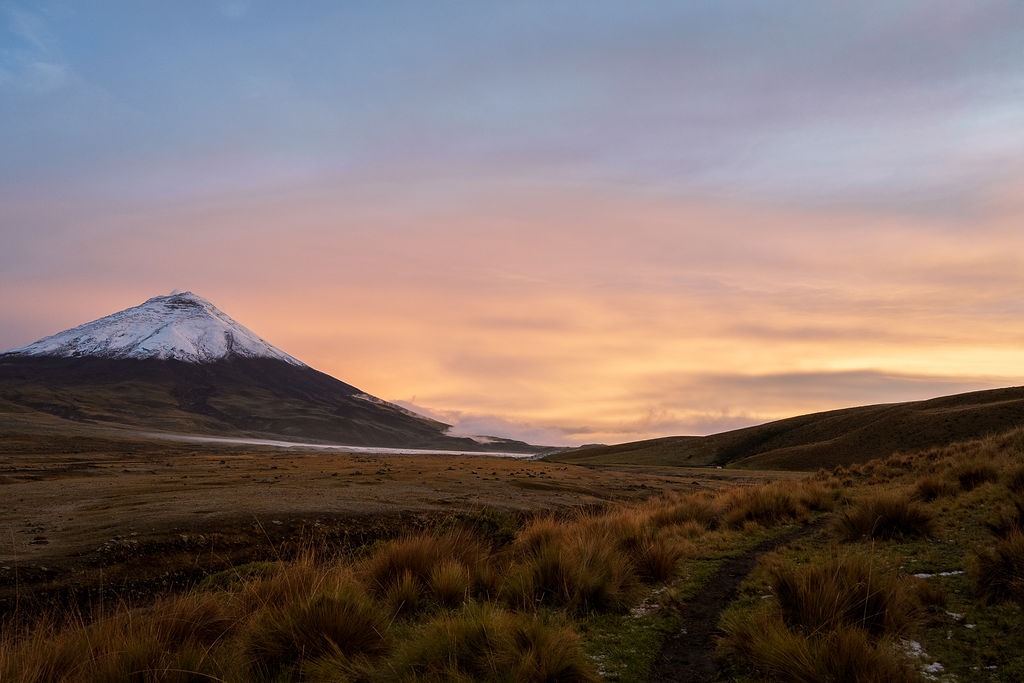
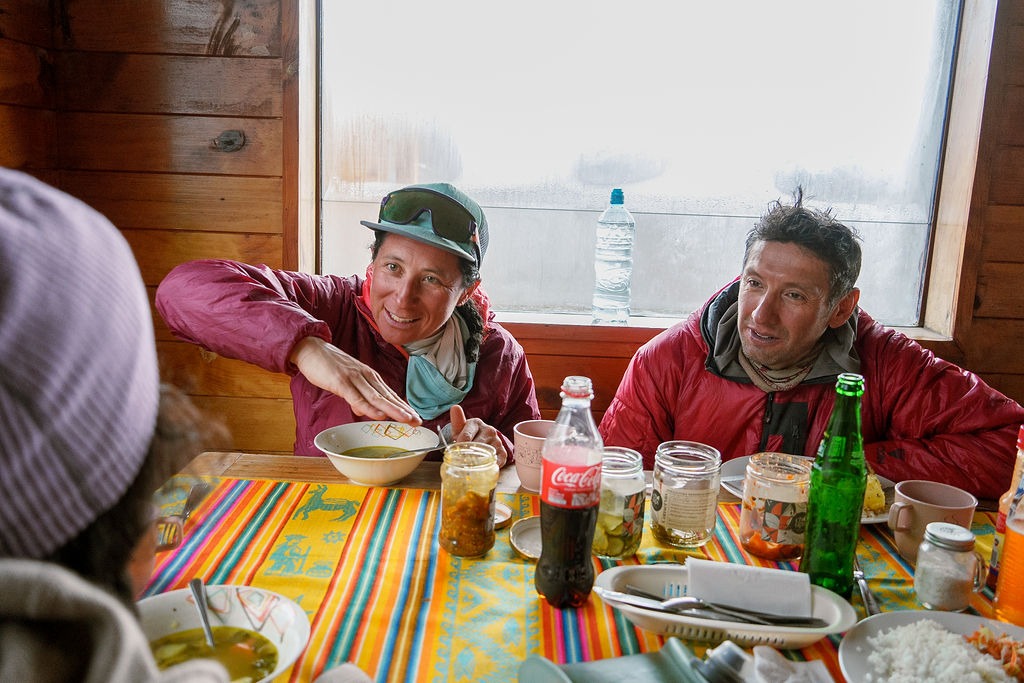
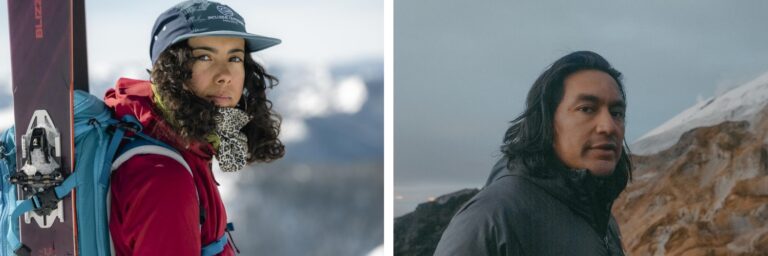
Author: Vanessa Chavariaga & Jr Rodriguez
Vanessa is a mountain athlete and environmental sociologist who focuses on the intersection of people and nature. Jr is a first generation bilingual bicultural filmmaker, photographer and BIPOC activist.
